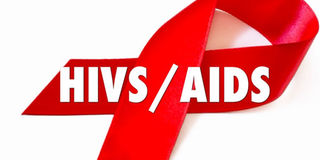Let’s not forget HIV fight amid Covid-19

Every December 1 since 1988, the world commemorates the World Aids Day. It is on this day that people across the globe unite in solidarity with people living with HIV and remember those that have died from illnesses related to the virus and those that have been affected in one way or the other.
This year’s commemoration, however, is unique. The 2020 has been a difficult year for many families and governments in various ways. It is the year that Covid-19 has killed people, affected millions and brought global economies to their knees in less than 12 months.
The Minister of Finance, Planning and Economic Development in the first quarter of this year, predicted an increase in the number of poor people by 2.6 million, severe reduction in exports, tourism and workers remittances; and general loss of revenue due to decreased economic growth.
Many families have found it difficult to put food on the table following lockdown restrictions that kept many in their homes and also constrained income flow.
A May to June survey by Twaweza, a non-governmental organisation, found out that 48 per cent of households reported that food stocks they had at home would not last more than a week.
This newspaper reported in July that some people living with HIV/Aids died because they could not afford food to eat before taking their drugs.
Besides food, some could not access timely medication because of movement restrictions occasioned by the three-month lockdown from March.
It was reported recently that there was a 30 per cent reduction in the intake of antiretroviral drugs from April-June 2020 compared to January-March 2020 due to the limited access of services during the lockdown.
Many teens, due to boredom and peer pressure, have also been reported to engage in sexual activities during the lockdown yet people between 15 and 24 years are responsible for 34 per cent of new HIV infections annually, according to the World Health Organisation.
Annually, 50,000 people get infected with HIV, with young girls being disproportionately affected while19,500 people die due to Aids-related illness.
Currently, there are nearly 1.4 million people in Uganda living with HIV/Aids, of whom 1.2 million are on treatment.
While Covid-19 has been whipping sections of the society, little attention has been paid to other diseases, including HIV, both at government policy level and at hospitals. Our view is that we should not relax our feet on the pedal in the HIV fight even when we face many challenges. There is still no cure for HIV/Aids yet.




